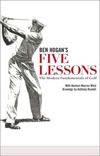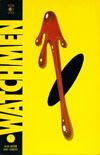You can never go home, but you can shop there
 "You can never go home again, but you can shop there." -Martin Blank, Grosse Pointe Blank
"You can never go home again, but you can shop there." -Martin Blank, Grosse Pointe Blank
This quote is quickly becoming my mantra for sports this year. I've always loved playing sports, but I have painfully discovered that at the age of thirty-seven, it is much easier to outfit yourself to look like an athlete than to perform like one. I started the softball season believing that I had adequately prepared my body, but right after I pulled both quadriceps in the second week, I accepted that there is no preparation for how well I can abuse myself. Both thighs, more specifically the rectus femoris muscles, had just healed and I was about to enjoy this week's game when I felt my left calf try to pull off the bone. The medial head of the gastrocnemius objected to my workout schedule and summarily punished my athletic folly.
I will acquiesce and not run for the next couple of weeks, but I refuse to give up my batting practices. It's the one skill that I love to obsessively practice. I started this season batting around the tenth spot on the roster, which for those of you not familiar with softball theory, is a spot reserved for those of us who haven't played baseball since we were twelve years-old. I hated that I wasn't contributing as well as I believed I could and I allowed my obsessive tendencies to burst forth in all of it's glory. My first purchase was a Hit-A-Way. It's a softball tethered between two cords, which can be attached to a pole. The idea is that you throw the ball so that it wraps around the pole and in the process of unwinding, you will strike the ball, thus creating an endless batting practice and developing an even, grooved stroke. The part that they don't tell you is that you'll look like a total fool for one entire week and almost pull your back out in the process of trying to hit a ball that doesn't vary in height or the path in which it travels. That was the most demeaning realization is that it's not doing anything but coming right back to me, yet trying to repetitively strike that ball was harder than trying to conjugate Spanish verbs. I mastered it after only six weeks of missing and then hitting with it so much that I injured both of my shoulders. I developed a wonderful little case of tendonitis and had to take time off from hitting. I had developed a level swing, but the mechanics of my swing were bad.
I needed more research and I discovered a long-forgotten theory of batting that's once again becoming popular: hitting inside the ball. I know, I was clueless at first too, but it's a pretty simple concept. If you see a guy hit a homerun, you can almost be guaranteed that he's making aggressive contact with the ball out in front of him and he's taken a huge stride out to meet the ball. These guys always look like they're going to fall over if the miss the ball. Then there's guys like Tony Gwynn, who mastered hitting inside the ball. Tony didn't swing for the fence, he was putting the ball in play and getting on base. He understood his strengths as a hitter and he understood the basic philosophy of baseball: you can't win a game if you can't get a guy on base. What allowed him to hit with such mastery was that he waited and allowed the ball to come to him. You have to allow the ball to pass that homerun point and travel into your body, but in that moment you now can control how you put that ball into play. Just by doing something as simple as waiting, we can allow ourselves to see something more and we can respond to a situation with an appropriate action. It seems almost childishly apparent, but I see guys on my team and on the teams we play every week who have never mastered something as simple as patience when it comes to their swings and patience is the secret to hitting inside the ball.
I think this is why I now love studying baseball and the art of hitting: I'm seeing a ton of relevancy in how I approach life and how to better manage something as simple as conflict. I want to be a better hitter on and off the field. Patience is a virtue and it's pretty dang beneficial for a batting average too as I'm learning. Oh, I almost forgot...this past week, I moved from the tenth spot on the roster to the fourth spot. The fourth spot is considered the "cleanup" position because they believe you have the skill to bring the other batters before you in to score. Yeah, I was a little joyful, but it doesn't mean that I'll rest on my laurels. You can earn something, but it doesn't mean that you still don't have to work to keep it.
 "You can never go home again, but you can shop there." -Martin Blank, Grosse Pointe Blank
"You can never go home again, but you can shop there." -Martin Blank, Grosse Pointe BlankThis quote is quickly becoming my mantra for sports this year. I've always loved playing sports, but I have painfully discovered that at the age of thirty-seven, it is much easier to outfit yourself to look like an athlete than to perform like one. I started the softball season believing that I had adequately prepared my body, but right after I pulled both quadriceps in the second week, I accepted that there is no preparation for how well I can abuse myself. Both thighs, more specifically the rectus femoris muscles, had just healed and I was about to enjoy this week's game when I felt my left calf try to pull off the bone. The medial head of the gastrocnemius objected to my workout schedule and summarily punished my athletic folly.
I will acquiesce and not run for the next couple of weeks, but I refuse to give up my batting practices. It's the one skill that I love to obsessively practice. I started this season batting around the tenth spot on the roster, which for those of you not familiar with softball theory, is a spot reserved for those of us who haven't played baseball since we were twelve years-old. I hated that I wasn't contributing as well as I believed I could and I allowed my obsessive tendencies to burst forth in all of it's glory. My first purchase was a Hit-A-Way. It's a softball tethered between two cords, which can be attached to a pole. The idea is that you throw the ball so that it wraps around the pole and in the process of unwinding, you will strike the ball, thus creating an endless batting practice and developing an even, grooved stroke. The part that they don't tell you is that you'll look like a total fool for one entire week and almost pull your back out in the process of trying to hit a ball that doesn't vary in height or the path in which it travels. That was the most demeaning realization is that it's not doing anything but coming right back to me, yet trying to repetitively strike that ball was harder than trying to conjugate Spanish verbs. I mastered it after only six weeks of missing and then hitting with it so much that I injured both of my shoulders. I developed a wonderful little case of tendonitis and had to take time off from hitting. I had developed a level swing, but the mechanics of my swing were bad.
I needed more research and I discovered a long-forgotten theory of batting that's once again becoming popular: hitting inside the ball. I know, I was clueless at first too, but it's a pretty simple concept. If you see a guy hit a homerun, you can almost be guaranteed that he's making aggressive contact with the ball out in front of him and he's taken a huge stride out to meet the ball. These guys always look like they're going to fall over if the miss the ball. Then there's guys like Tony Gwynn, who mastered hitting inside the ball. Tony didn't swing for the fence, he was putting the ball in play and getting on base. He understood his strengths as a hitter and he understood the basic philosophy of baseball: you can't win a game if you can't get a guy on base. What allowed him to hit with such mastery was that he waited and allowed the ball to come to him. You have to allow the ball to pass that homerun point and travel into your body, but in that moment you now can control how you put that ball into play. Just by doing something as simple as waiting, we can allow ourselves to see something more and we can respond to a situation with an appropriate action. It seems almost childishly apparent, but I see guys on my team and on the teams we play every week who have never mastered something as simple as patience when it comes to their swings and patience is the secret to hitting inside the ball.
I think this is why I now love studying baseball and the art of hitting: I'm seeing a ton of relevancy in how I approach life and how to better manage something as simple as conflict. I want to be a better hitter on and off the field. Patience is a virtue and it's pretty dang beneficial for a batting average too as I'm learning. Oh, I almost forgot...this past week, I moved from the tenth spot on the roster to the fourth spot. The fourth spot is considered the "cleanup" position because they believe you have the skill to bring the other batters before you in to score. Yeah, I was a little joyful, but it doesn't mean that I'll rest on my laurels. You can earn something, but it doesn't mean that you still don't have to work to keep it.







